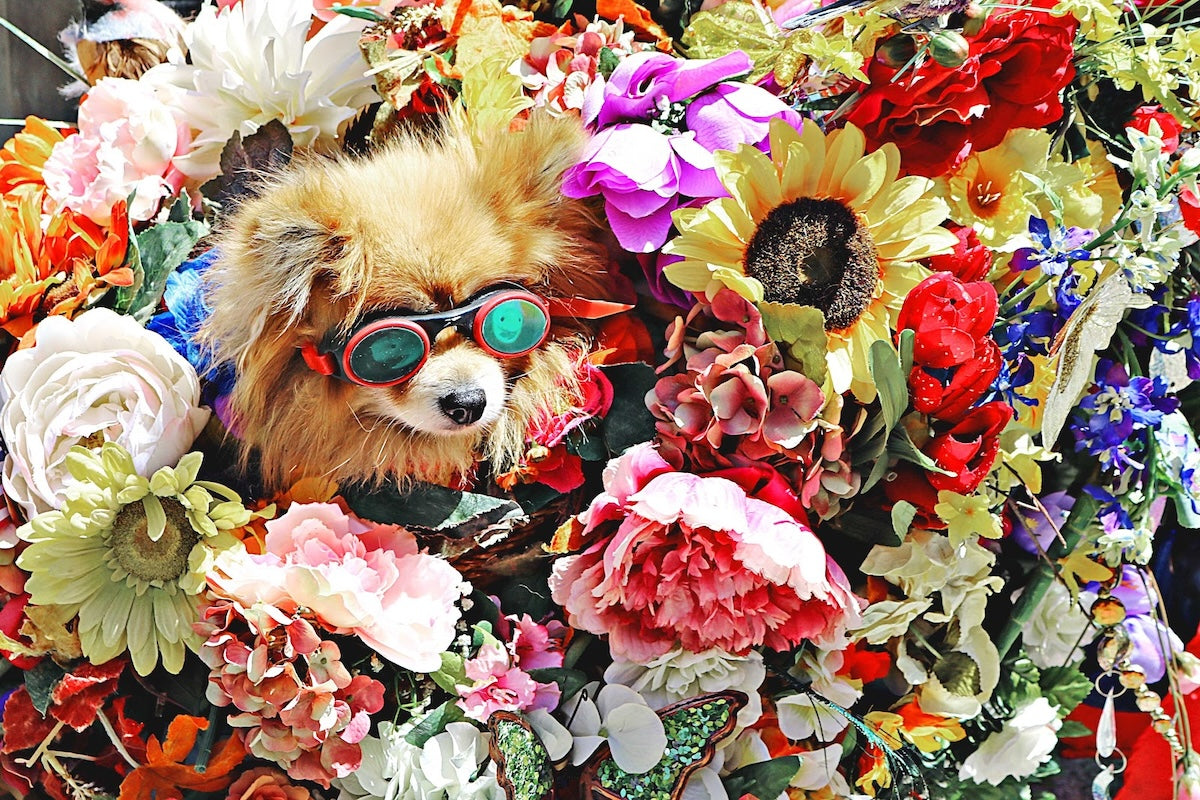Your dog's allergic reactions can be frightening if you don't know what caused them. To avoid fatal injuries, learn about the most poisonous flowers and plant life that can affect your dog. Get started now!
As you are working to keep your environment healthy for your dogs, be sure to use biobased animal waste bags from The Original Poop Bags®. Make sure your animals and your gardens stay beautiful!
When we get a dog, we often don't think about their potential allergies or sensitivities. It's common knowledge not to feed dogs chocolate, but have you ever wondered if they'd react to specific types of flowers? Are there dangerous flowers we need to avoid? The answer is yes.
Plantlife seems like it can be harmless, but the truth is that it can easily cause your dog to have a deadly reaction. To help prevent this, it's best to learn which flowers are dangerous to our dogs. In this article, we will go in-depth and list several different herbs that could potentially be harmful to man's best friend.
Are Flowers Harmful to Dogs?
The answer to this question is both yes and no. Just as humans are all different with their allergies and sensitivities, so is your dog. Dogs can react severely to some flowers while other ones may not bother them as much. Though research has shown that specific types of flowers can be more potent and dangerous to your dog, it will all vary depending on breed and your specific dog’s needs. It's unlikely that your dog is going to react if they come into contact with one of these flowers for a brief moment. However, it will be an issue if your dog ingests one of them.
Poisonous Summer Flowers
Summer is considered the prime time for hazardous flowers. Everything is in full bloom and has grown in abundance. On a hot summer day, it's nice to take your dog on a walk or to the dog park. However, beware of the many types of flowers that grow during these months.
Thrush Flower
Thrush is one of the most delicate flowers in summer because the whole flower is toxic. It's not easily detected, and symptoms usually don't start to show until 72 hours have passed. Significant symptoms include the nervous system shutting down.
Hyacinths
One of the most abundant flowers is the hyacinth. Their bulbs are toxic to dogs and cats, but only if consumed. Although, it's rare to see any symptoms other than sickness. If your dog has been vomiting after a walk or fun outdoors, then it may be from this flower.
Anemone Flower
Anemone bloom in early May until the end of June. They are usually found in mountainous areas, and include a few different varieties. The main poisonous types are generally white, and only a small bit is needed to kill a dog. They are extremely toxic and should be avoided at all costs!
Tulip
Another dangerous flower that you may commonly find is tulips. They only slightly poison dogs if they eat the bulb. Common symptoms include nausea, vomiting, diarrhea, and excess salivation.
Ivy Plant
This plant tends to produce small berries that are extremely toxic to dogs. They are abundant in the summertime, and tend to be poisonous to both dogs and humans. Look out for these symptoms: breathing difficulties, upset stomach, and diarrhea.
The Yew
The yew is more of a shrub than a flower, but it forms in the spring and continues to grow throughout the summer months. It's one of the rarer dangerous flowers which includes fatal symptoms if consumed. Dogs tend to eat the seed, bulb, and leaves which are extremely toxic. A small dose of this plant can be life-threatening and can stop the heart instantly.
Oleander
The oleander is a type of flower that starts to bloom in the spring, but is in full bloom during the summer months. All components of the flower are incredibly toxic to dogs, even with a small nibble.
Arum
The arum is very rare but extremely toxic to dogs. All of the plants tend to be dangerous flowers and must be treated immediately. If consumed, a dog will instantly feel a burning sensation in their mouth and produce an excess amount of drool. Other symptoms include vomiting, diarrhea, and if not treated, they will go into a coma.
Poisonous Spring Flowers
During spring, many plants are starting to bud out of the ground. It can be hard to tell when they're not fully in bloom, but some of these may be noticeable to your dog. To help prevent them from ingesting a dangerous flower, be sure to keep an eye on them and ensure they don't eat any of the following flowers.
Lilies
Lilies are beautiful plants that are common in the springtime. The problem is that they contain chemical components that are highly toxic to dogs, cats, and rabbits. All types of lilies, including the peace, calla, amaryllis, and autumn crocus are dangerous. These flowers contain a substance called oxalic acid which, if consumed, can be highly poisonous. To ensure that your dog doesn't ingest one of these, be sure to keep them away from open areas where they are planted. If your dog nips off part of the petal, it will likely just feel sick for a while. The most poisonous part of the plant is the stem and roots.
Daffodil
Yellow daffodils are also extremely toxic to pets. The bulb of the plant includes a dangerous chemical that stores up alkaloids. When consumed, the toxins can cause a host of problems, and they can even be deadly.
Azaleas
Another pick on our dangerous flowers list is the azaleas which are less common amongst most regions. This flower contains a high amount of grayanotoxins. When consumed, the toxin shuts down a dog's nervous system, which can lead to paralysis and other problems.
Morning Glory
Morning glories are more common, but are only deadly if a dog consumes the seeds. The seeds contain multiple chemicals that are known to be poisonous to dogs. Be very careful around these types of plants, as they can easily get overlooked.
Chrysanthemum
The last spring type of flowers that are dangerous to your pets is chrysanthemums. Out of all the things on our list, these are the least harmful, but still may cause your pet to become sick. The plant develops a chemical substance called pyrethrins. When consumed, this chemical can cause a loss of balance or hinder coordination.
Other Dangerous Plants
Dangerous flowers are just one variation of plants that pets may react to. There are different types of plants that may also trigger an allergic reaction. Although it's usually easier to tell with herbs, vegetables, edible plants, and trees, here's a quick list of honorable mentions:
- Chives
- Garlic
- Hops
- Leeks
- Chamomile
- Marijuana
- Onion and shallots
- Tomato
- Rhubarb
- Apple trees
- Apricot trees
- Bead trees
- Cherry trees
- Winterberry holly
- Plumtree
- Peachtree
- Hydrangea
- Rhododendron
As you can see, there's an extensive list of plants, dangerous flowers, and vegetation that can be harmful to dogs. If you see any of the symptoms we've highlighted, then it's best to get your dog to the vet as soon as you can. Symptoms often change and can become deadly if not treated, so never wait to see what happens.
It's essential to keep an eye on your dog when they're roaming out in the open. It just takes one nip of a small flower, and they could potentially end up in a fatal situation. To avoid this, keep your dog away from any places where these plants grow. Always keep trees and vegetation in your yard to a minimum or place barriers that dogs can't dig under or jump over. Hopefully, we've helped you learn which flowers are dangerous to dogs.
When you’re working to keep your local environment healthy, use products from The Original Poop Bags®. Let’s keep your yard, neighborhood, parks, and more healthy and thriving!
Author’s Bio: I’m Rachel H. I’m hugely passionate about flowers and gardens. I studied Botanics in New York and Sao Paolo. I’m determined to open my flower shop, and I’m currently studying for my Ph.D.






